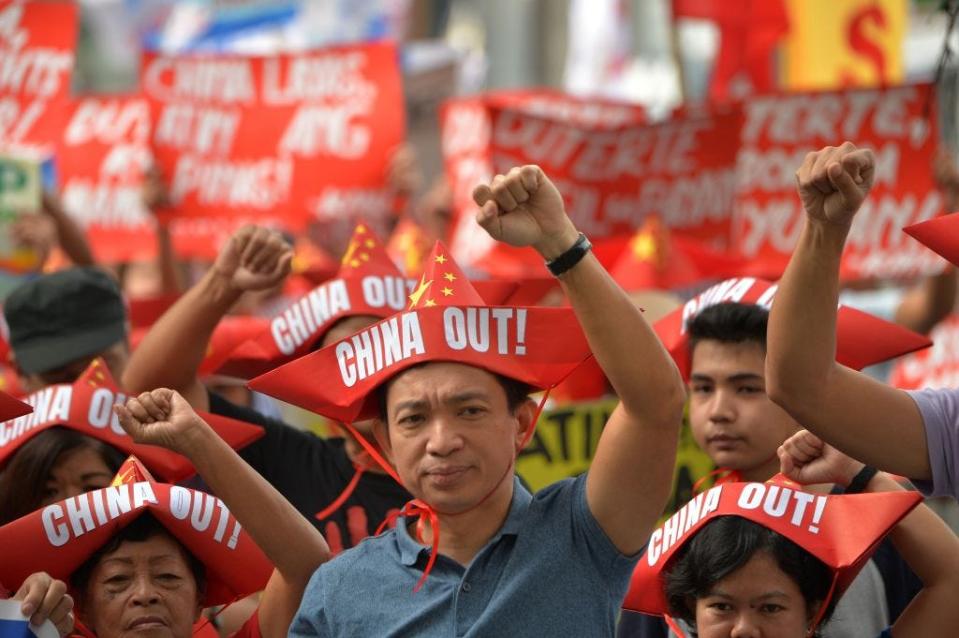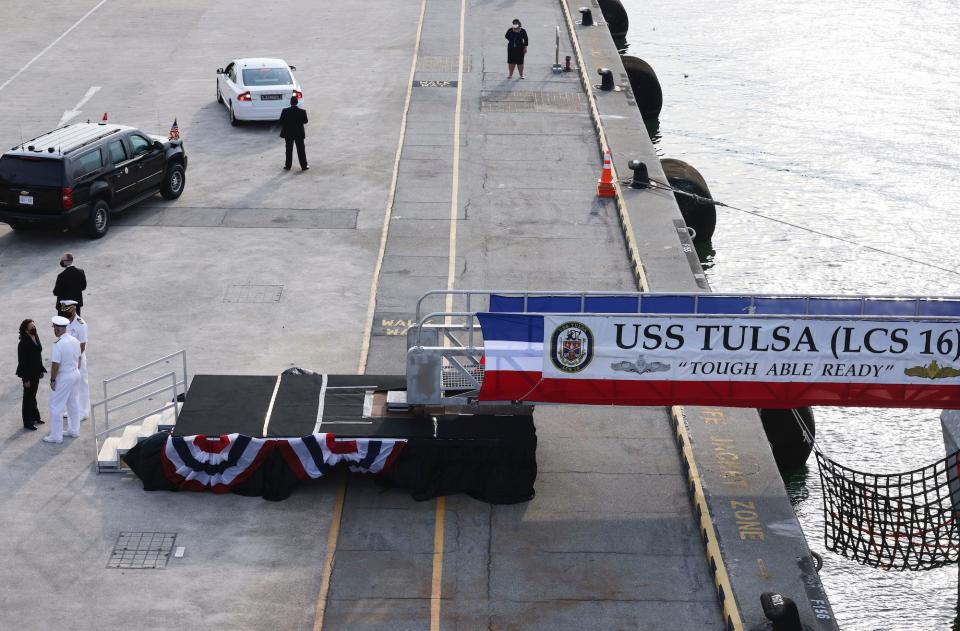China is irritating more countries in Asia, but the US is struggling to come up with a better offer
China's aggressive foreign policy has turned off many of its neighbors.
US officials have noted this trend, describing it as a miscalculation by Beijing.
But experts say the US still doesn't have Indo-Pacific strategy or a better offer than China.
China's aggressive foreign policy has frustrated its neighbors, but dismay with Beijing doesn't necessarily translate into an embrace of the US, and experts say the Biden administration has yet to articulate a clear strategy for the region and a better offer for countries there.
China has had contentious relations with many of its neighbors for some time. Those fraught ties have deteriorated in recent months, as shown by violent border clashes with India, Beijing's increasing economic pressure on Australia over its support for inquiry into Covid-19, and Chinese threats toward Japan over its engagement with Taiwan.
Where governments have been more accommodating toward Beijing, public backlash is emerging or intensifying.
In October, Cambodian police cracked down on a protest against a Chinese military presence there. Anti-China sentiment is also growing in Pakistan, where recent deadly bombings have targeted Chinese interests. Filipinos continue to protest China's conduct in the South China Sea and their government's conciliatory approach toward Beijing.
Polling shows that many of China's neighbors see Beijing unfavorably and view its growing military as a threat. A recent survey found that South Koreans viewed China less favorably than they did Japan, a historical rival who forced Korean women to be sex slaves before and during World War II. A survey of Indians ages 18 to 35 found that China was the least-trusted country.

US officials see those trends as signs of Chinese miscalculation.
"What we've seen of late, really, is China taking on many countries simultaneously," Kurt Campbell, the White House coordinator for the Indo-Pacific, said an Asia Society event in July.
Campbell said that China's assertiveness with Taiwan, India, Japan, Australia, the US, and "wolf warrior" diplomacy ran counter to his assumption China wouldn't take on more than one foreign-policy challenge simultaneously.
"I see little yield and, if anything, a rising sense of nationalism and a sense of aggrievement and a determination to continue to prosecute a ... case internationally across the board," Campbell said.
US Navy Rear Adm. Michael Studeman, chief intelligence officer for US Indo-Pacific Command, echoed Campbell at a separate event in July, saying that Chinese officials appear "tone deaf" to how their tactics "really are starting to turn off a lot of nations out there who don't like the look of a more powerful China and how it's acting."
"Wolf warrior" diplomacy, conditions attached to COVID aid, and a general "demand for gratefulness" are "just a taste of what it looks like when China is strong and confident," Studeman added. "I think it's starting to scare a number of different nations."
'Not being Trump is not good enough'

There is "bubbling resentment" in many places, according to Charles Dunst, an associate with Eurasia Group's Global Macro practice.
"People are definitely fearful of and frustrated with, I think, China's military aggressiveness and diplomatic aggressiveness," but that won't necessarily lead to an embrace of the US, Dunst told Insider in August.
"Most countries don't choose between China and the United States," Dunst said. "They're not turning around and saying, 'well, China bad, US good. We're all pro-America now.'"
Dunst said that balancing is seen clearly in Southeast Asia, where feelings on China are mixed but increasing strategic competition is a top concern.
In recent weeks, Defense Secretary Lloyd Austin and Vice President Kamala Harris have visited the region. Secretary of State Antony Blinken held virtual meetings with leaders there related to the Association of Southeast Asian Nations, or ASEAN, a highly regarded regional institution.
The US leaders sought to revitalize partnerships and demonstrate US commitment to the region but stressed their visits weren't about taking sides.
"We are not asking countries in the region to choose between the United States and China," Austin said in Singapore in late July. A month later, Harris said US "engagement in Southeast Asia and the Indo-Pacific is not against any one country, nor is it designed to make anyone choose between countries."

That engagement is largely welcomed and seen by some as overdue - "We need to step up our game in Southeast Asia," Campbell said in July - but even with progress in some areas, including on security issues, experts saw Harris' "America is back" message as off-key and US offerings as lacking.
"Not being Trump is not good enough," Van Jackson, a senior lecturer at Victoria University of Wellington in New Zealand, said on a recent podcast. Jackson said that to counter China the US needs to "play to the needs" of ASEAN countries by addressing vaccination efforts, climate change, and "post-pandemic economic recovery."
Biden "has yet to present a serious Indo-Pacific policy - or its most important element, an effective economic strategy," Susannah Patton and Ashley Townshend, experts at the University of Sydney's United States Studies Centre, wrote as Harris toured the region.
Southeast Asian countries value economic cooperation and are alarmed by a potential "decoupling" of the US and China, according to James Crabtree, executive director of the International Institute for Strategic Studies' Asia office.
The US remains the region's most powerful military but is no longer its biggest economy and doesn't set the rules for trade, "so the US is in danger of having a rather unbalanced approach to this part of the world where it carries a big sword but doesn't have very much to offer in its wallet," Crabtree said in June.
Dunst has argued that deeper engagement with China poses risks for many of these countries, but, he told Insider, Biden still needs to make them a better offer.
"If the US goal is to ... capitalize on this Chinese overstepping in much of the developing world, you have to have real, aggressive economic plans that actually are coming in response to what local populations need," Dunst said.
Read the original article on Business Insider
